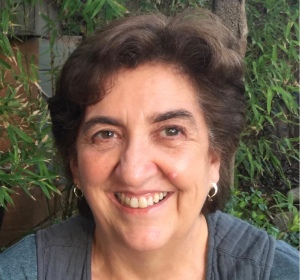from inquire2empower.ca/2022/08/17/congrats-to-dr-judith-scott-for-induction-into-reading-hall-of-fame:

Congrats Dr. Judith Scott aka Judy Scott
The British Columbia Literacy Association is proud to announce that Dr. Judith Scott is one of five 2022 inductees into The Reading Hall of Fame. On December 1st, she will join the 136 living members in the RHF and will receive one of the highest honours bestowed on literacy scholars worldwide. Dr. Scott recently retired from the University of California – Santa Cruz in the Department of Education where she taught for 22 years. While at UCSC, she served as the Chair of Academic Senate Committees on Teaching and Career Advising, the Chair of the Indigenous Faculty Networking program, the Director of the Vocabulary Innovations in Education Consortium, and Principal Investigator of the Central California Writing Project. She has also been the Chair of Undergraduate Programs in Education, Graduate Director for the Ph.D. program, Chair of the Language, Literacy and Culture specialization as well as the Co-Director of a Professional Development Institute in California that served over 350 new and veteran teachers for three years, focused on English Language learning using teacher inquiry and coaching. In her spare time, she was the Principal Investigator of four large grants funded by the United States Department of Education/National Center for Educational Research and the State of California.
In Canada, the British Columbia Literacy Council proudly embraces Judy as our own. She was a well-loved member of the Faculty of Education at Simon Fraser University from 1991 – 2000. She was also instrumental in creating the Early Literacy Network of 52 school districts in B.C. and active in our International Reading Association chapter. Throughout her career, Judy has been known for her support of classroom teachers and recognized their pivotal role in putting research into practice. Her focus has always been on how to evoke a sense of playful discovery in the teaching and learning of words. We are thrilled for her work to be acknowledged and for her to take her place alongside educators such as Ken and Yetta Goodman, Rob Tierney, P. David Pearson, Shirley Brice-Heath, Annmarie Palincsar, Allan Luke, Vicki Purcell-Gates and David Olson.
An appreciation of the power of words has always been part of Judy’s life. Her stay-at-home Mom was an avid reader with an exceptionally well-developed vocabulary. Her Dad is an enrolled member of the Cherokee Nation and use to read the dictionary on a regular basis to improve his vocabulary. His parents instilled in him that proficiency in English was the way to success. His time in boarding school in Oklahoma, where one of his seven siblings died, fueled a keen desire to create a better life for himself. He recognized early on that you couldn’t change first impressions, but you could change minds when you opened your mouth. Judy was a middle child. With an older brother who became a lawyer and a younger sister who became a teacher, good communication skills were needed to survive.
Judy’s interest in words followed her into her graduate studies with Richard Anderson and her work with Bill Nagy at the Center for the Study of Reading. Her work on vocabulary acquisition and blending vocabulary instruction with effective teacher education within the context of language, literacy and culture has received international recognition throughout her career, but this is a particularly note-worthy honour.
Since retirement, Judy has pivoted into working as an educational consultant in the private sector. This has allowed her to focus on the work she believes will make the biggest impact. Her first children’s book, When the Mission Bells Rang, was written in consultation with the Amah Mutsun Tribal Band. It tells the story of colonization through an Indigenous lens using the voices of the animals in the Monterey Bay area whose lives were disrupted by the Spanish Missions along with those of the Indigenous peoples. The Mutsun names for animals are used in this story and underline the sophistication of the Amah Mutsun culture that had evolved in the area for thousands of years before the Spaniards arrived in the late 1700’s. The inclusion of the Mutsun vocabulary speaks volumes and underlines the power that words carry.
For more information go to: The Reading Hall of Fame
